| About Station | ||
| Infrastructure | ||
| Research Activitioes | ||
| Transfer of Technologies | ||
| Scientists | ||
| Contact Information |
About Station
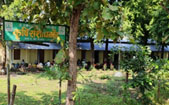
Agricultural Research Station, Tharsa is situated in Mauda Tahsil of Nagpur district on Ramtek- Nimkheda road. The distance of this research station from Mauda bus stop is 15 km away while from Tharsa railway station it is 1.5 km. Nimkheda and Tharsa are the nearby villages of this station which are only 2.5 km away from this station.
Irrigation system is dependent on the Pench dam Canal water source is used for 30.00 ha area of this station.
Agro Climatic Information
Rainfall:- Avg. annual Rainfall is 978.40 mm
Soil Type :- Black Cotton Soil
Infrastructure
|
Location |
Area(Ha) |
|
Tharsa |
67.09 |
- The station has 67.09 ha Area
- Water storage in form of one farm ponds is available
- Tractor and implements
Acreage Utilization
|
Total area of the farm |
67.09 ha |
|
Area under roads, bunds, threshing yard, farm pond & Bulidings |
13.09 ha |
|
Area under cultivation |
54.00 ha |
Mandate
- To develop production technology of drilled rice taking into account the constraints of the region.
- To conduct the multivarietal trials of paddy, gram, lathyrus and wheat.
- To produce breeder seed and implementation of foundation and certified seed production.
Research Activities & Achievements
- Execution of Kharif /Rabi cropping scheme
- Execution of Kharif /Rabi Res. Trials
- Conduction of RAWE Programme
Transfer of Technologies
- Participation in Krishi Melawas
- Organization of field day
- Extension activities carried out with the help of RAWE students
- Provided the need based information in the allotted villages
Scientists
In this station following posts are sanctioned
- Associate Professor of Agronomy & Officer in Charge
- Assistant Professor of Agronomy
- Assistant Professor of Botany
- Assistant Professor of Plant Pathology
Contact Information
Associate Professor (Agronomy) & Officer in Charge
Agricultural Research Station
Tharsa , Tq. Mauda, Dist. Nagpur 441106
Maharashtra (India)
Ph No. 9421818112
E-mail: arstharsa@pdkv.ac.in, arstharsa1910@gmail.com

 August 7th, 2021
August 7th, 2021 

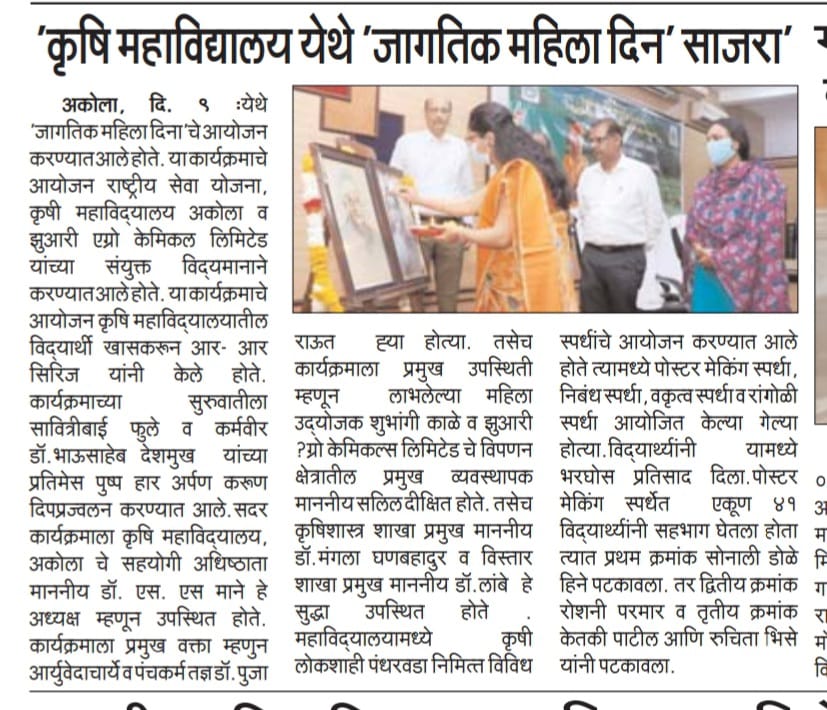



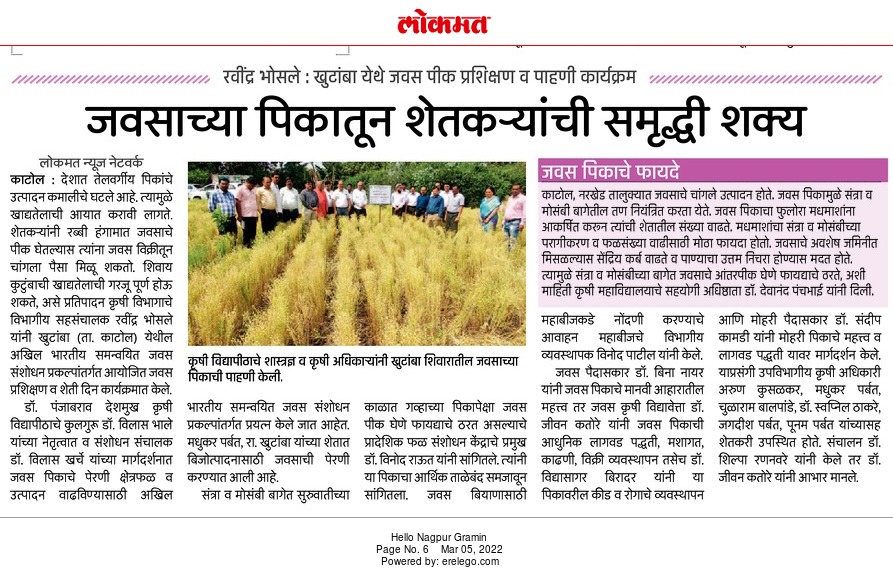

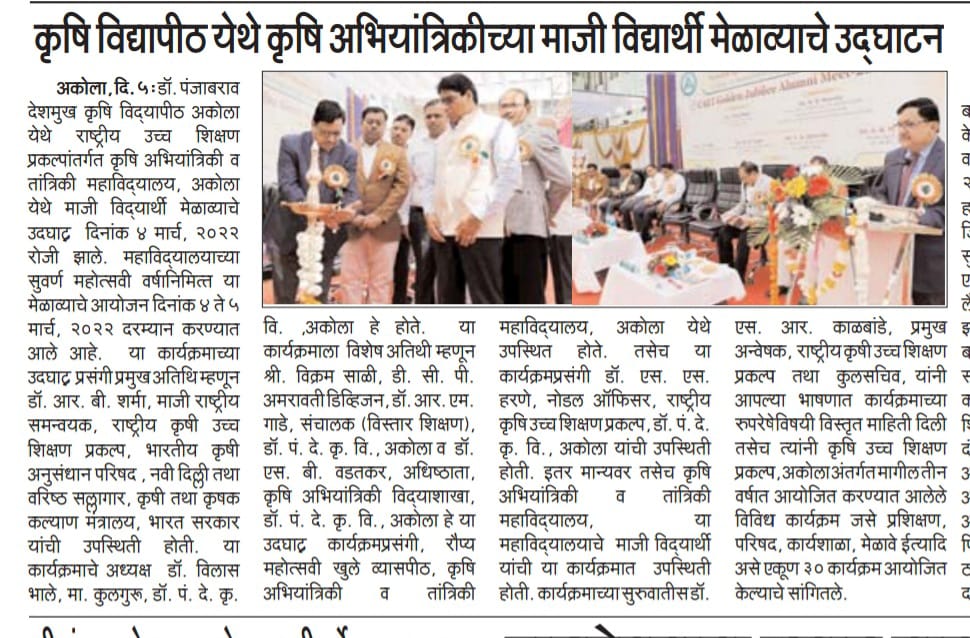
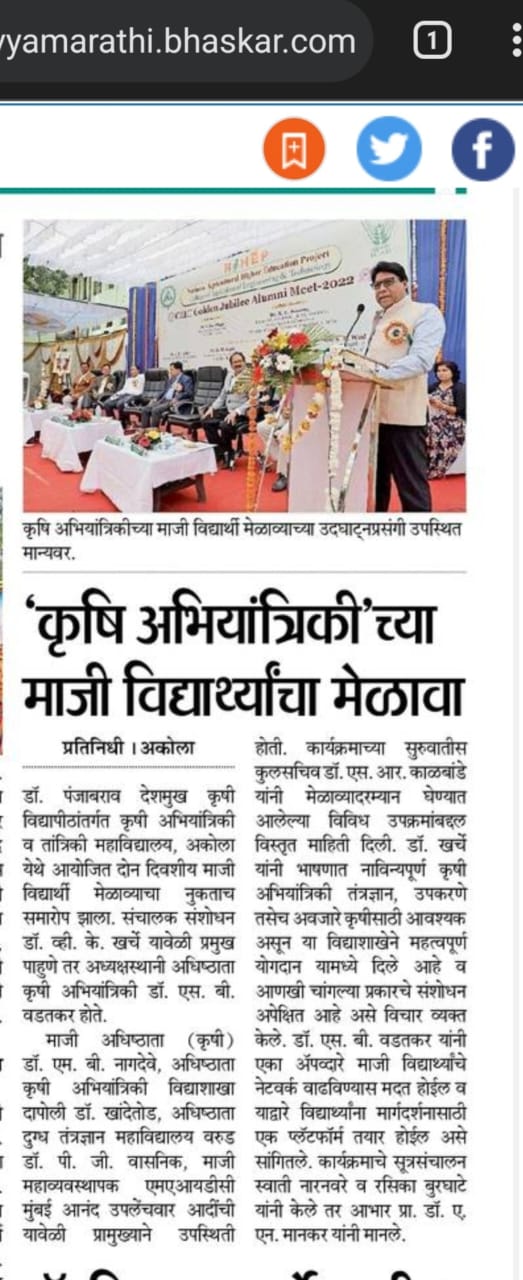
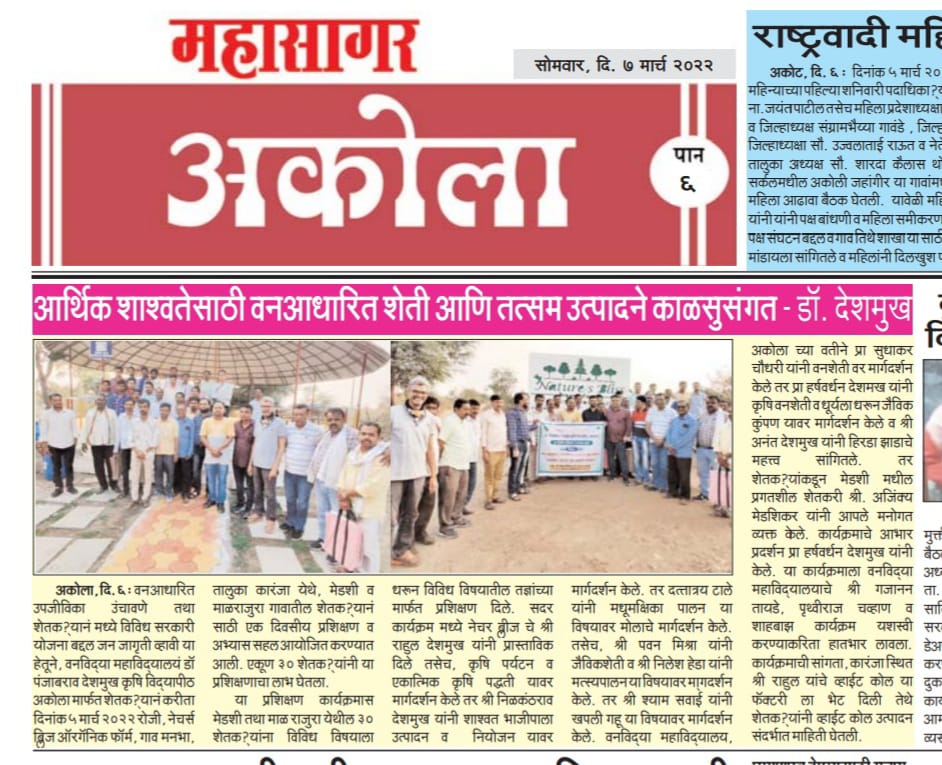
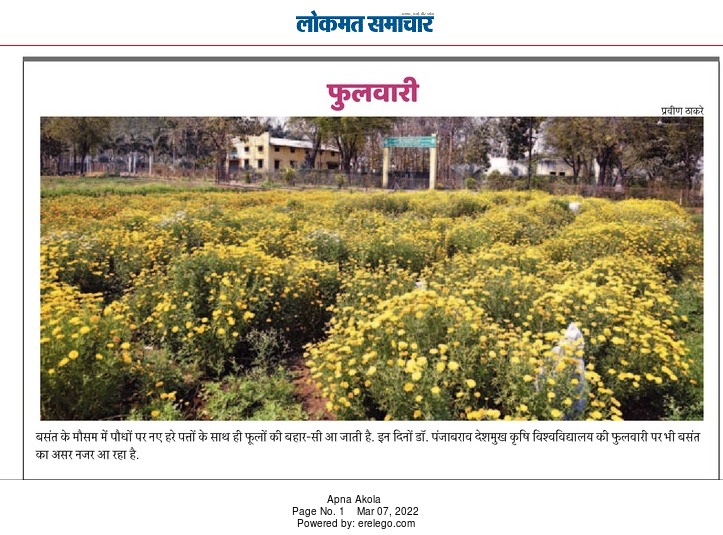
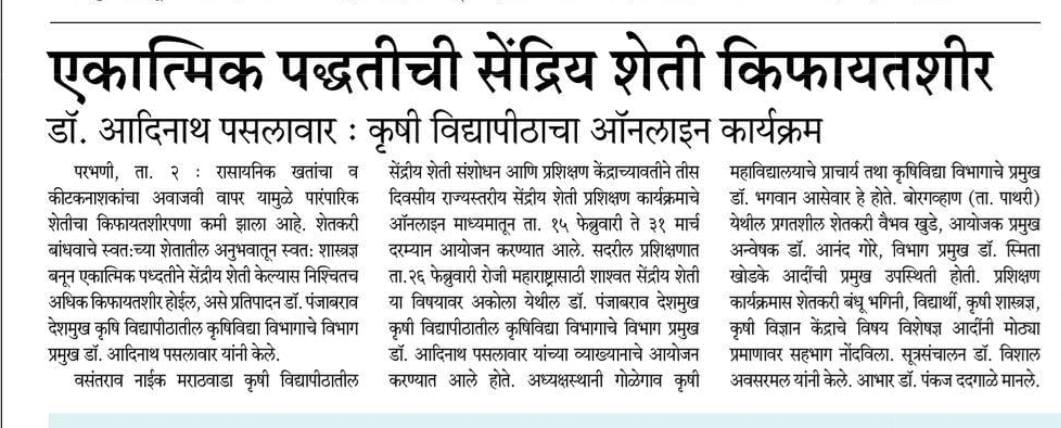
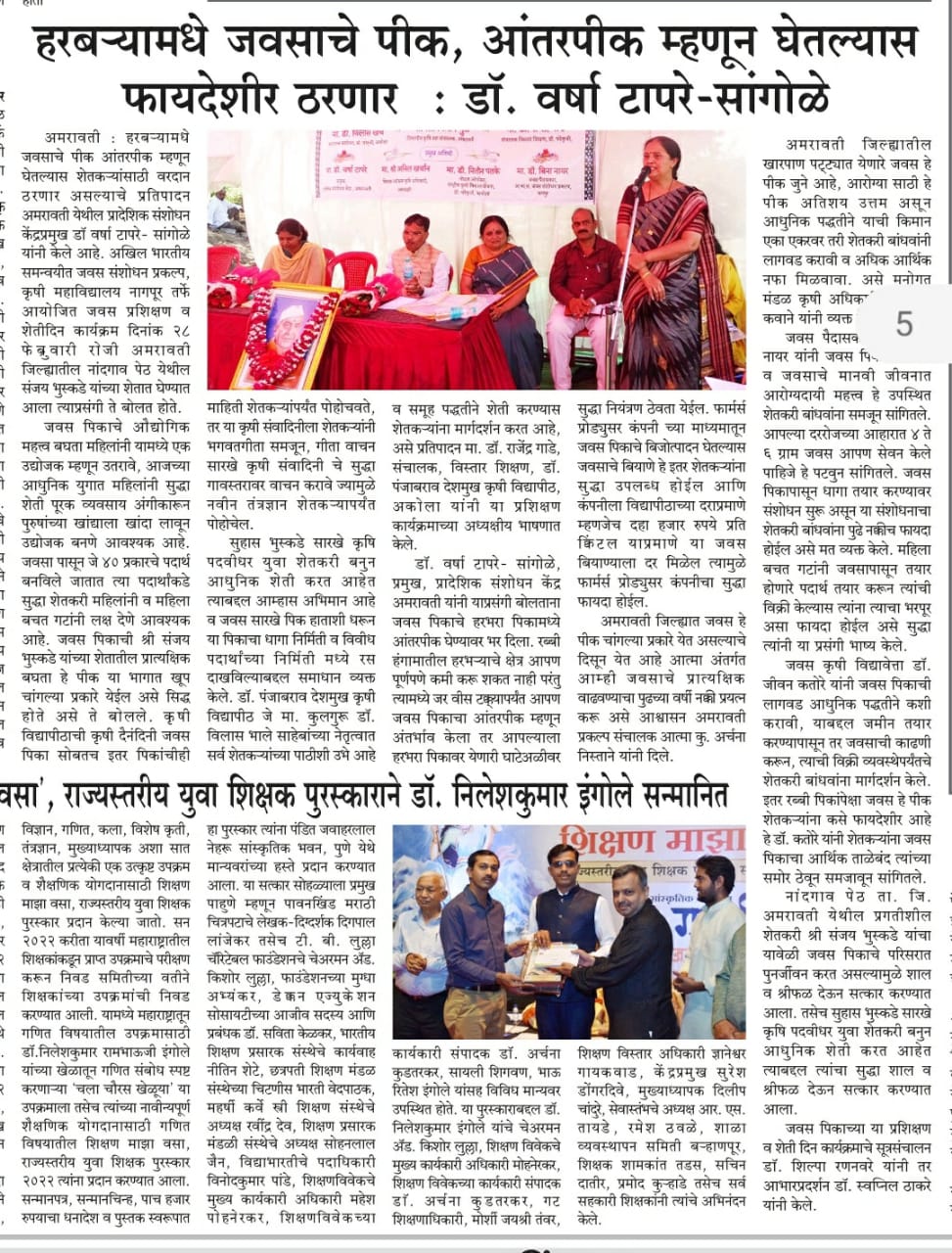
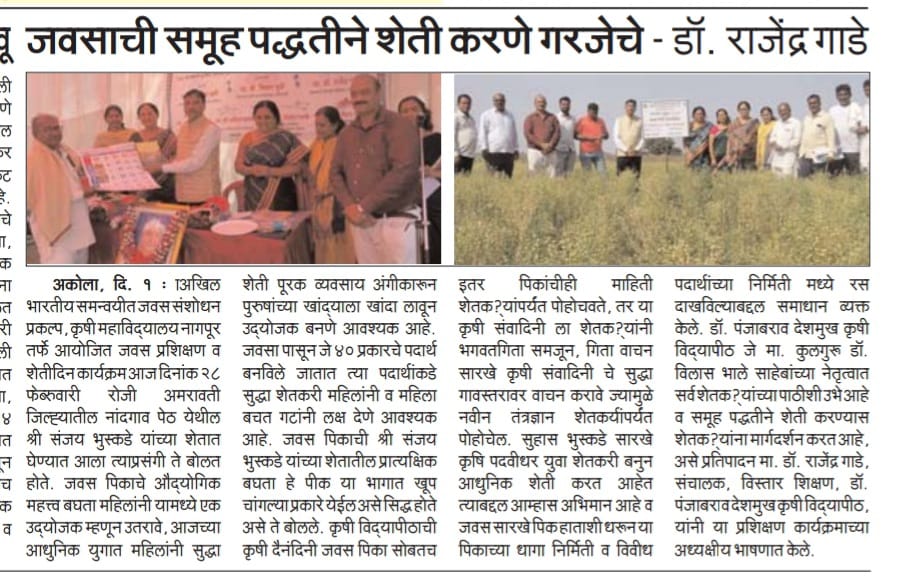


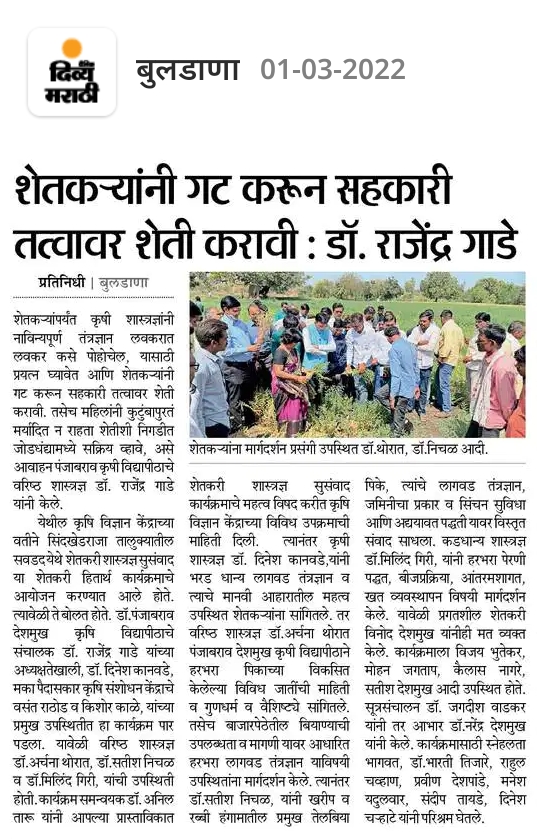
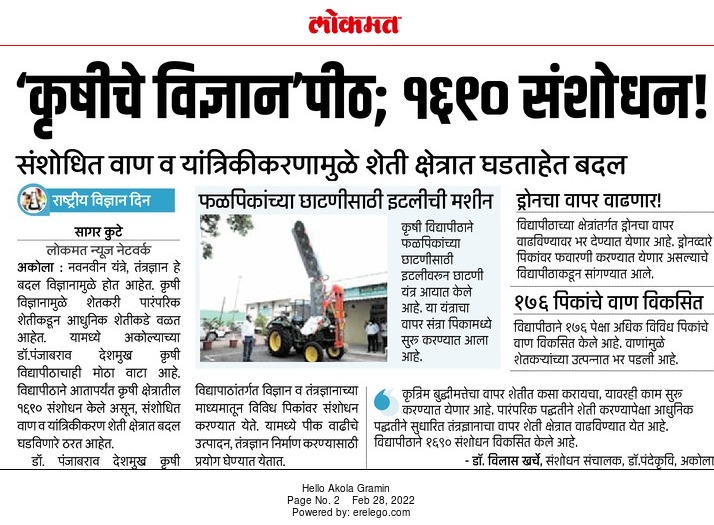







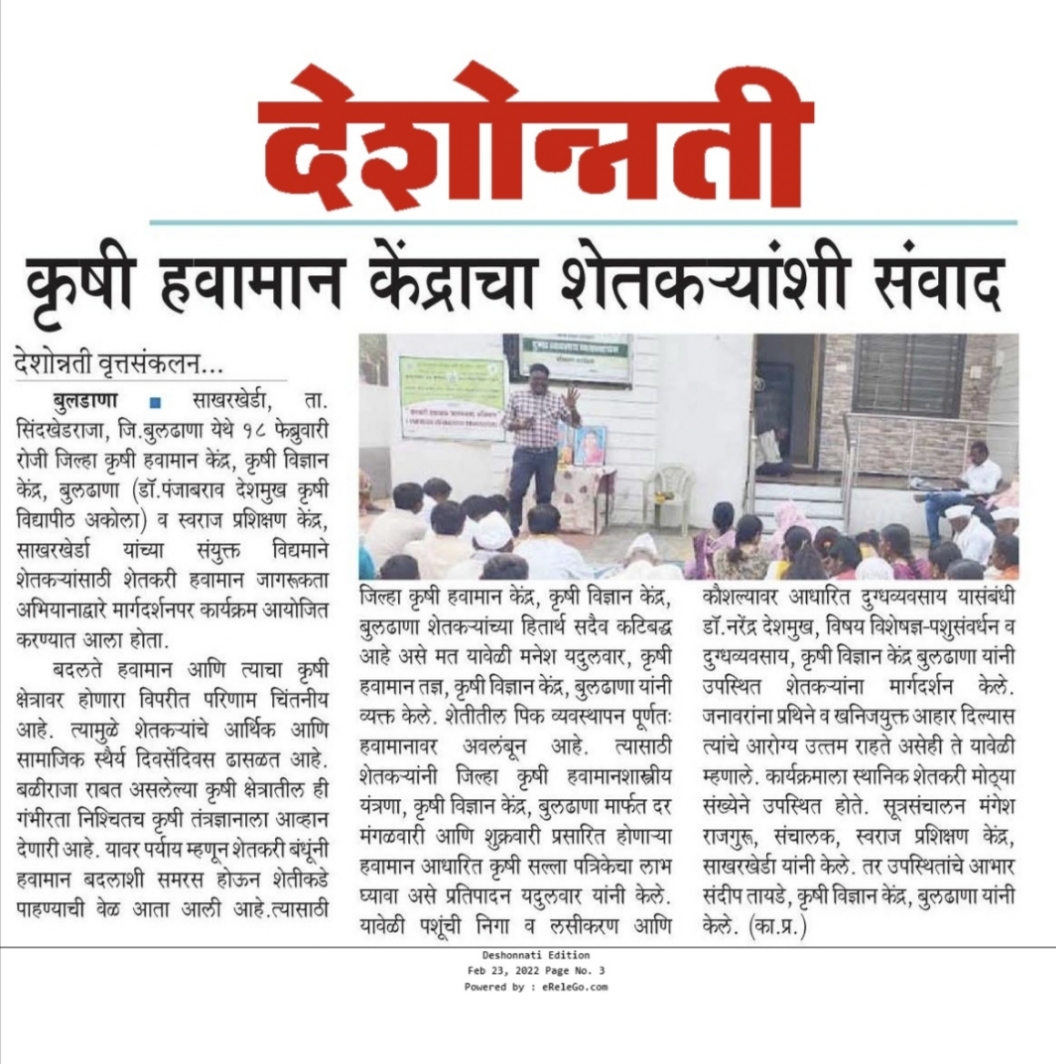

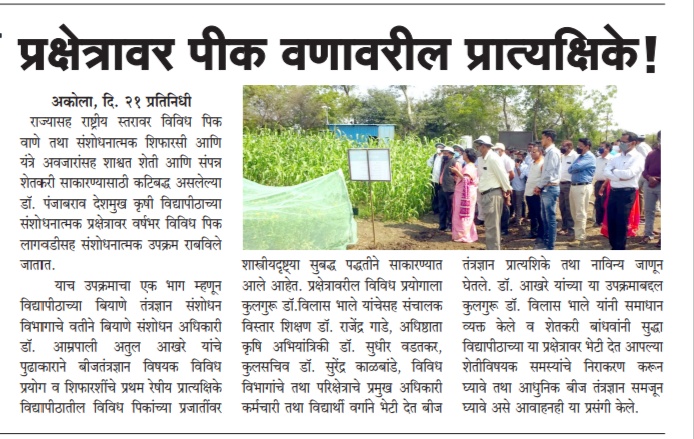
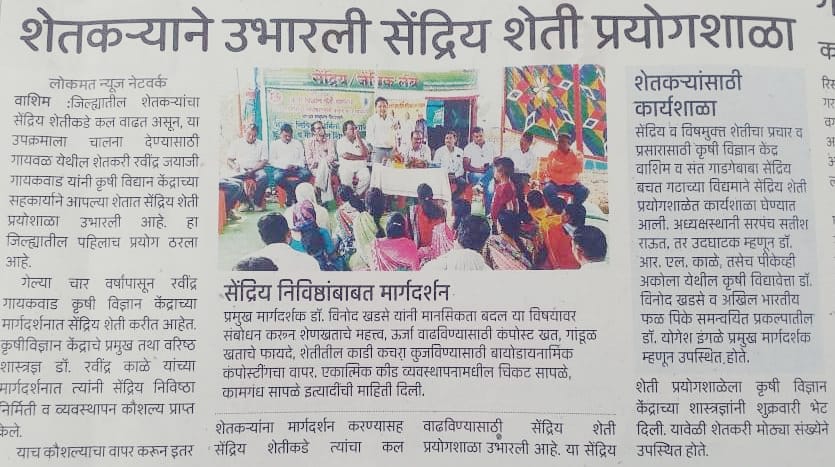



























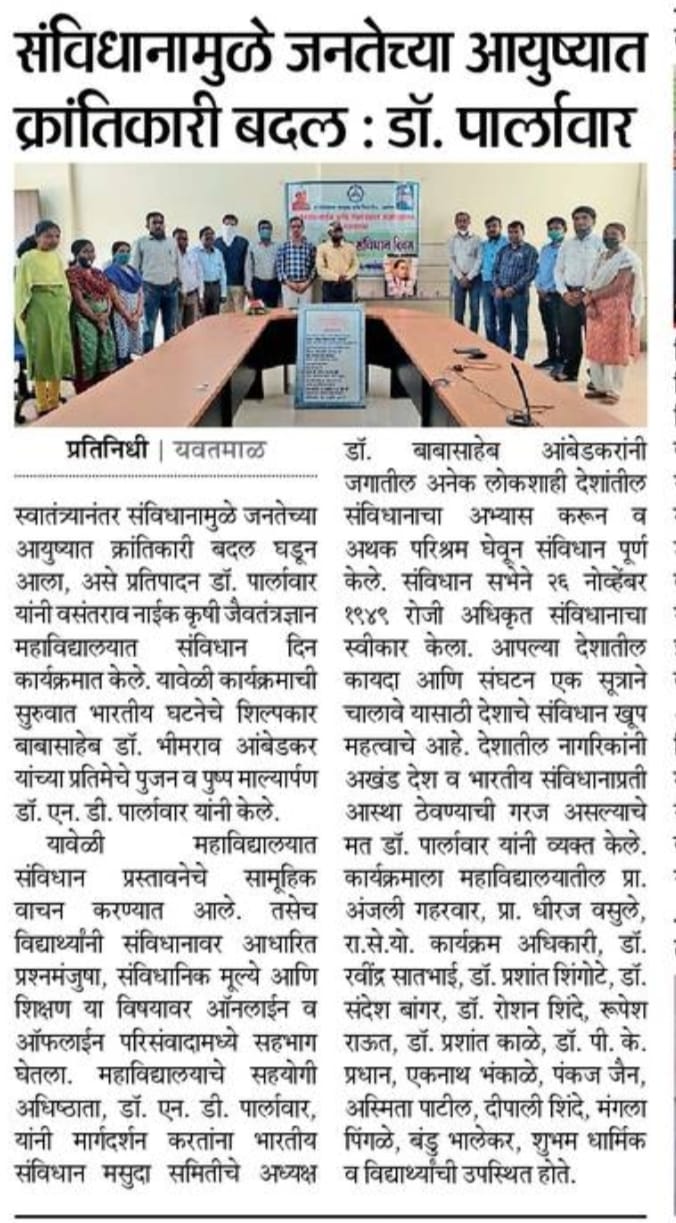
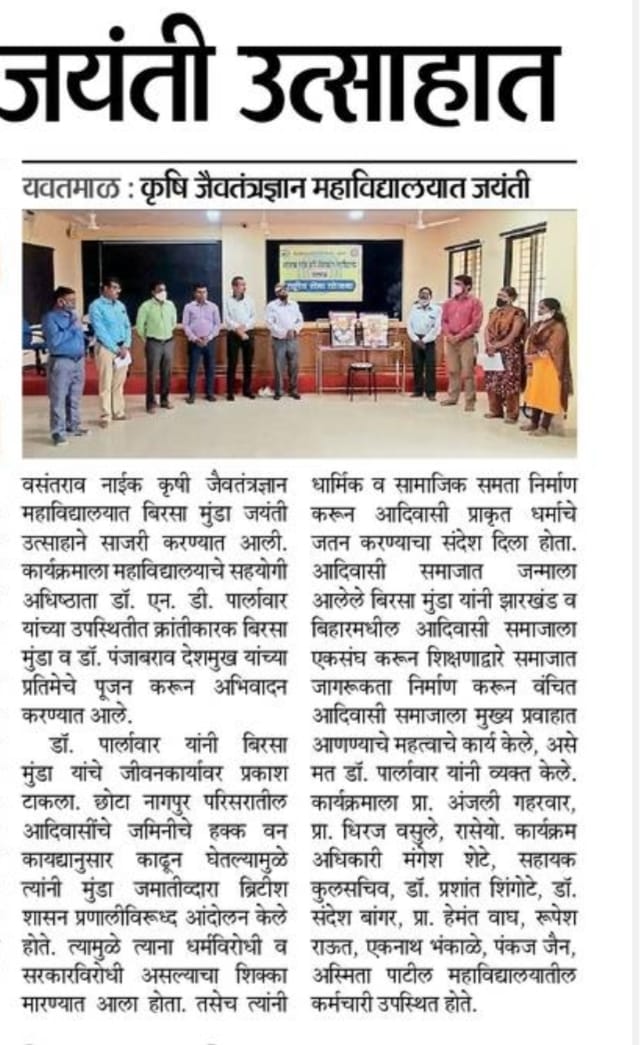
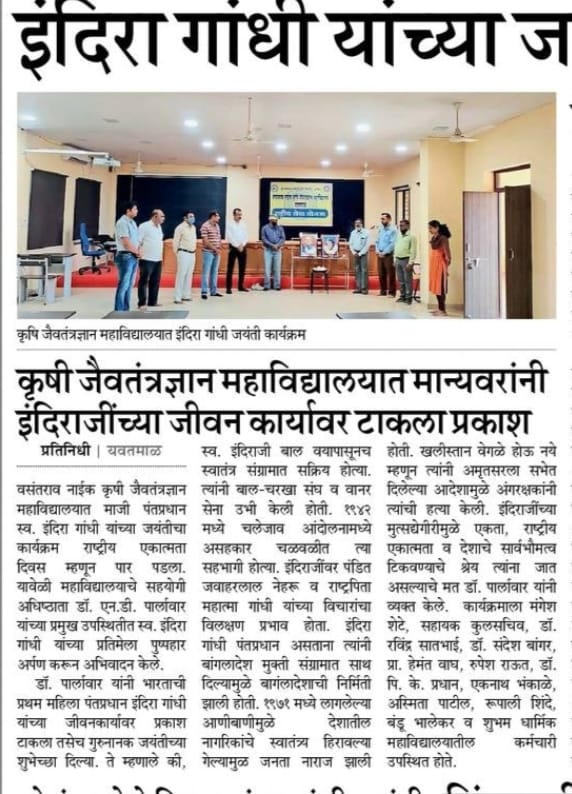
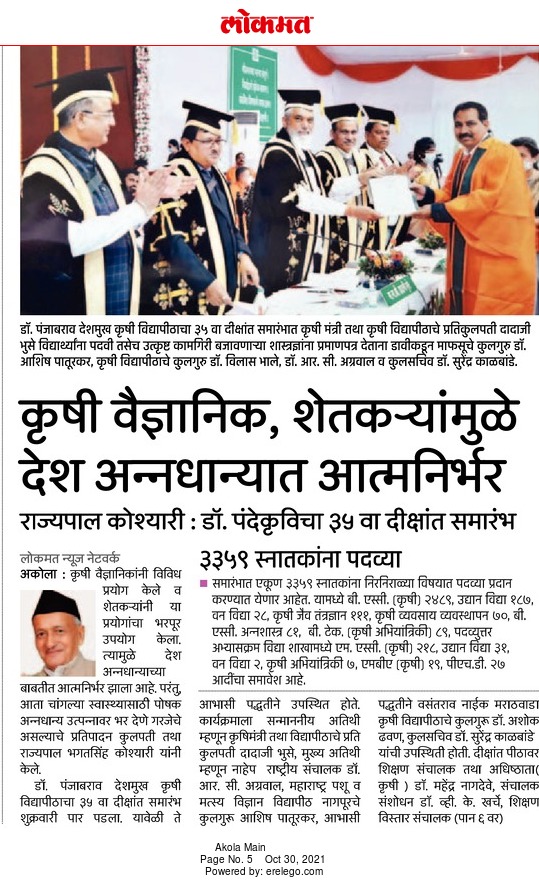
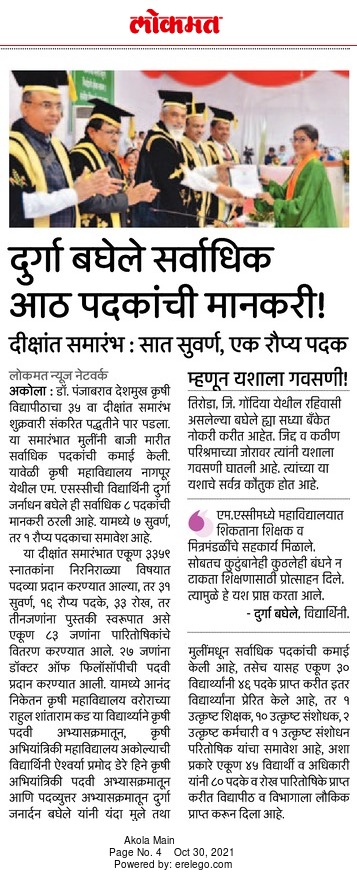
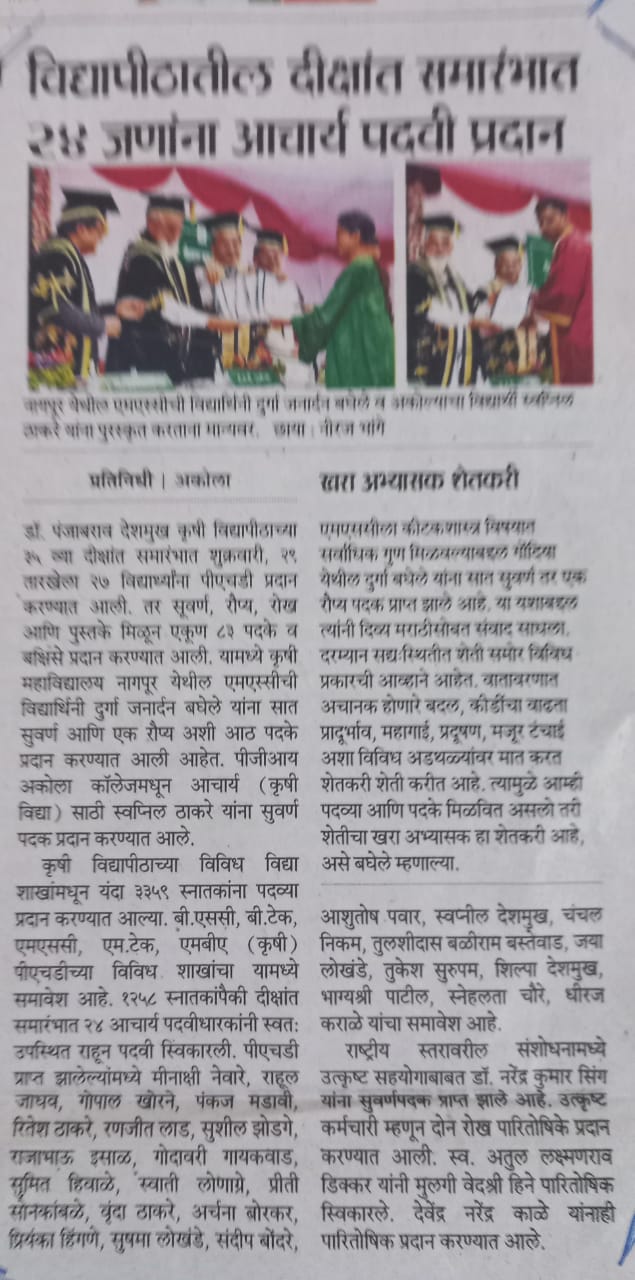















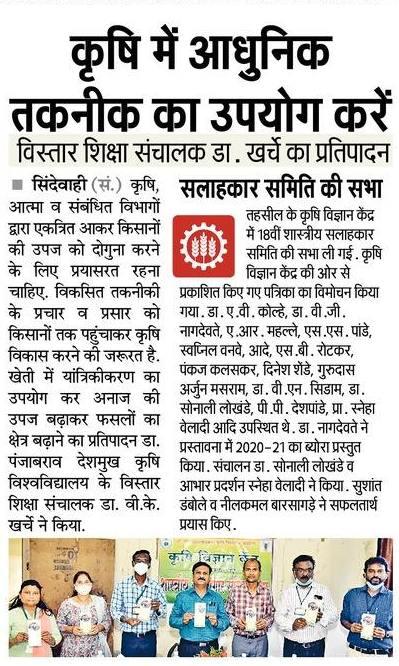

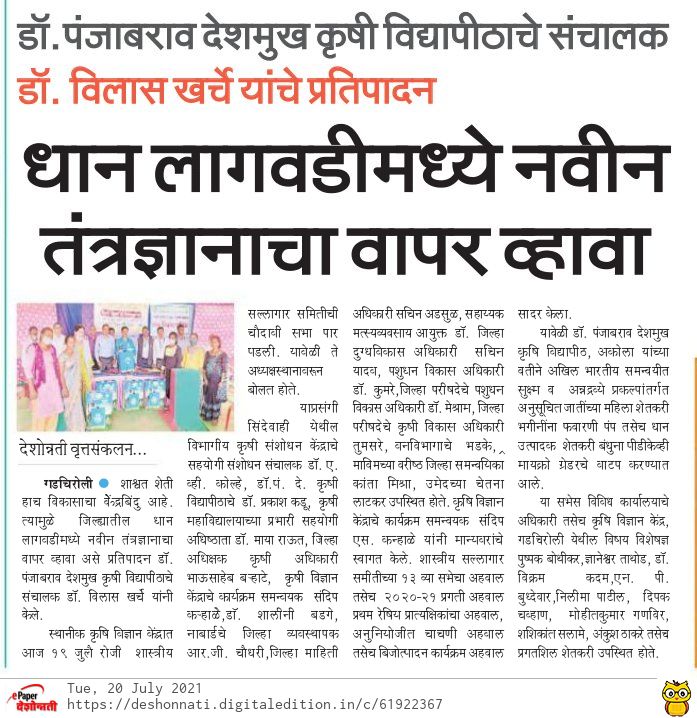
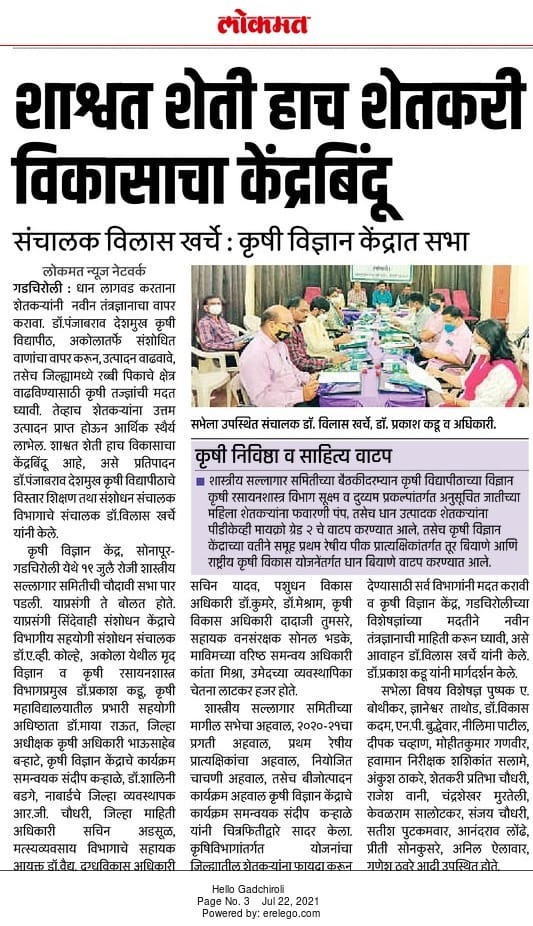
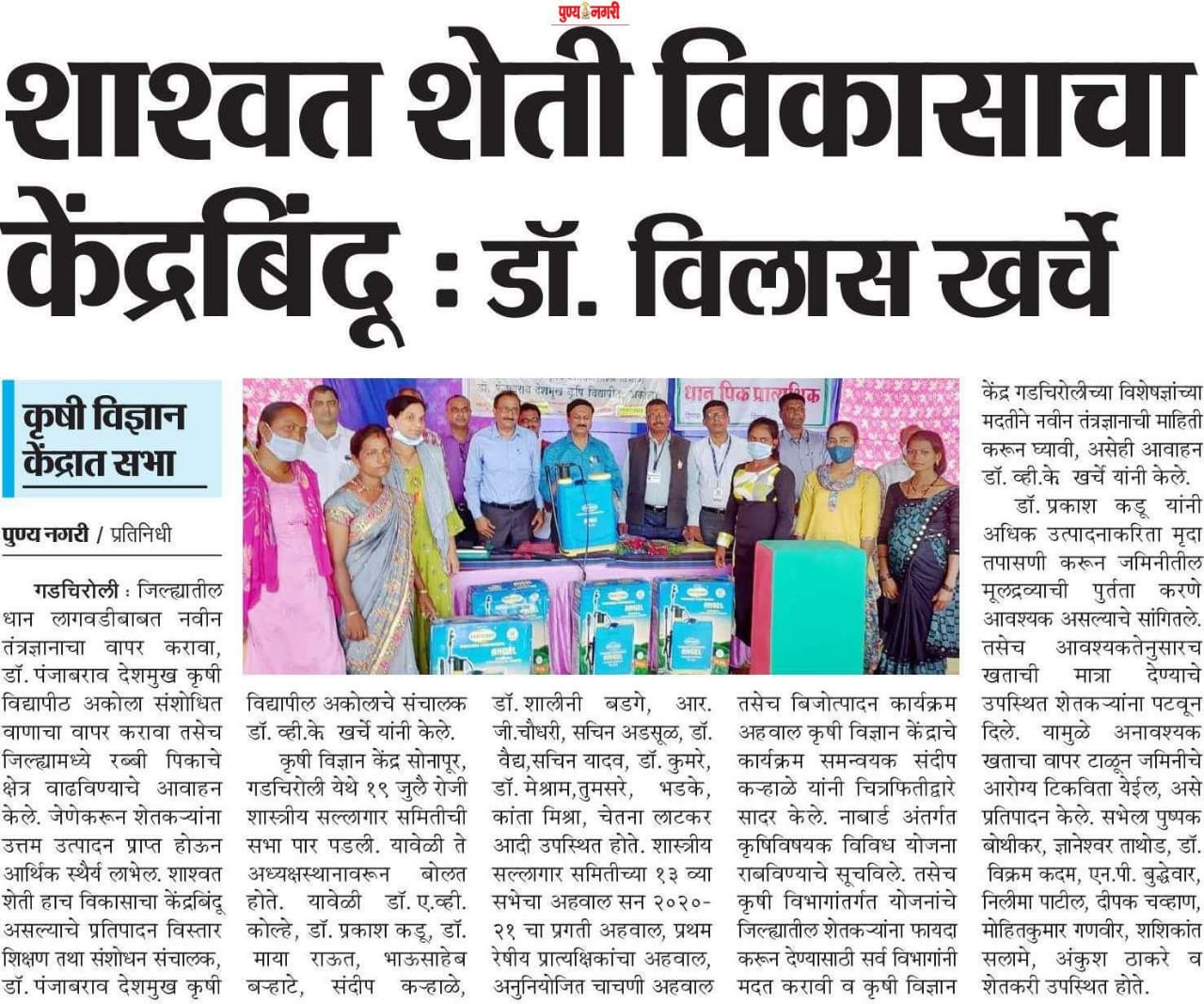
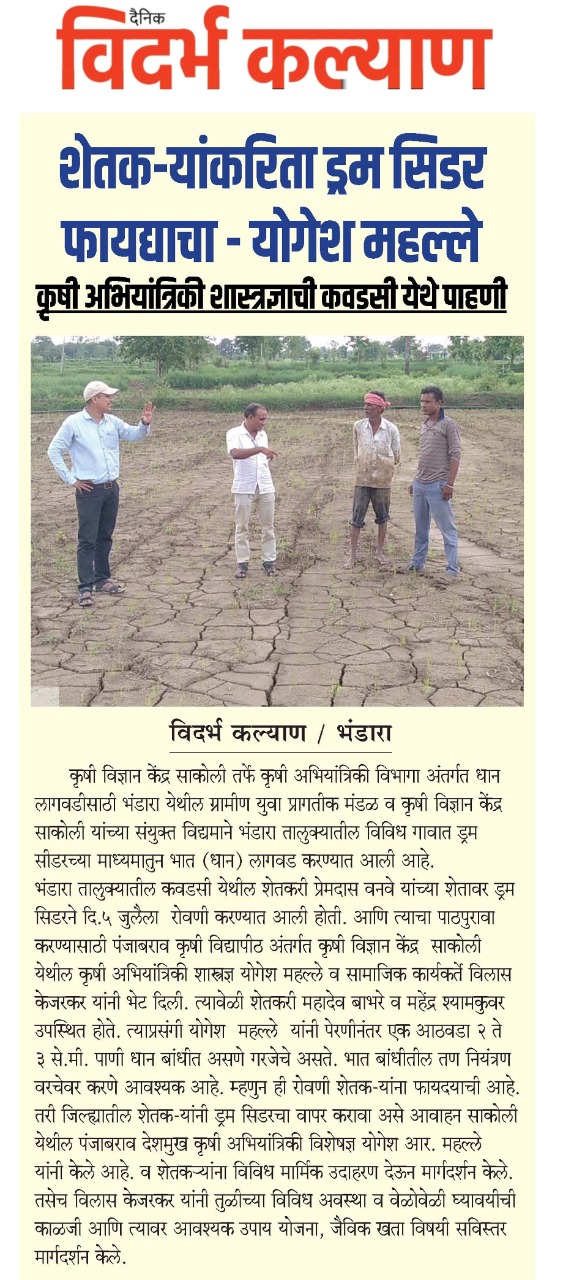
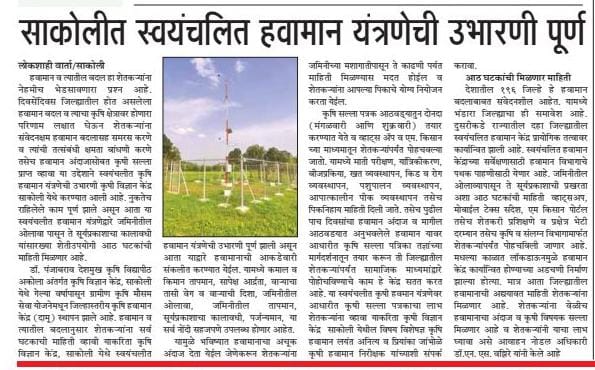
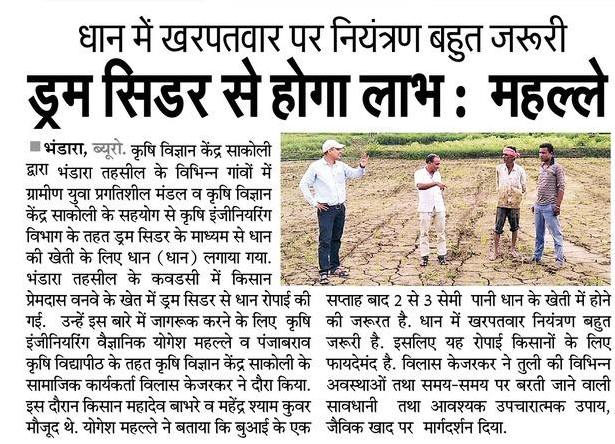
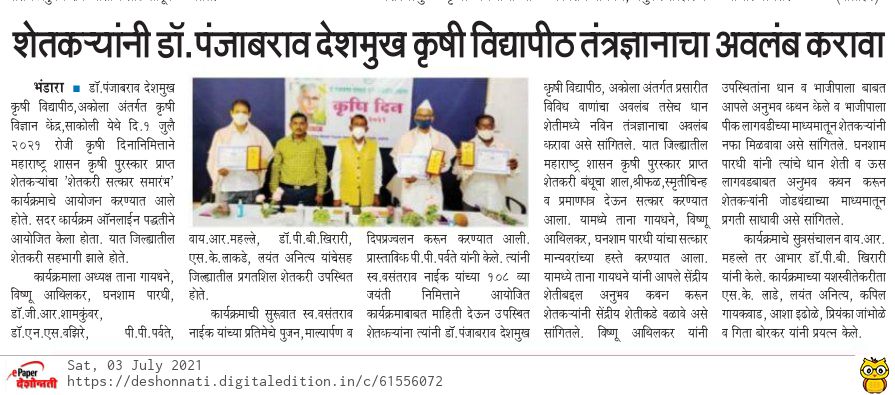
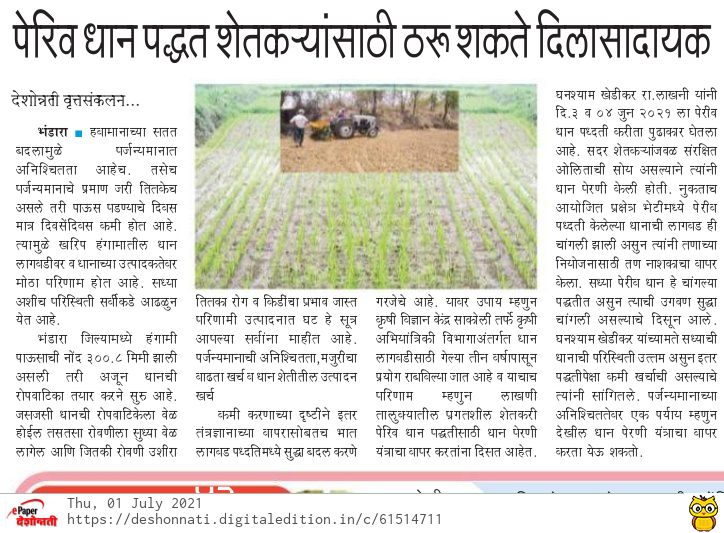
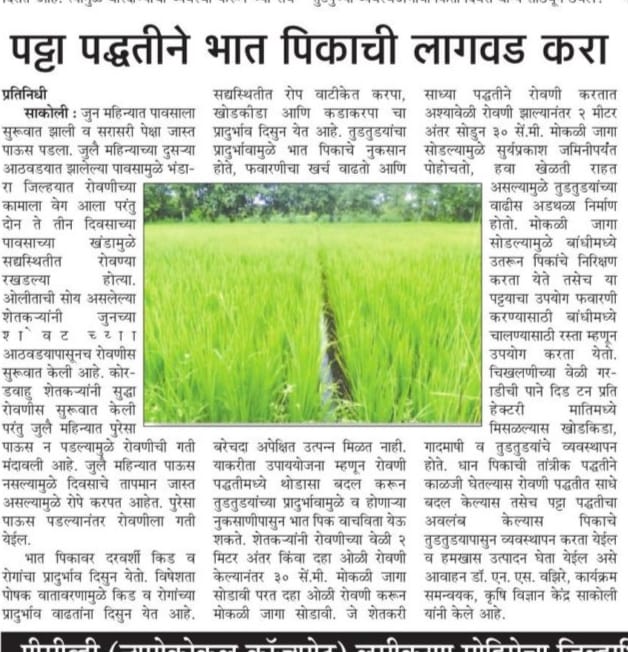
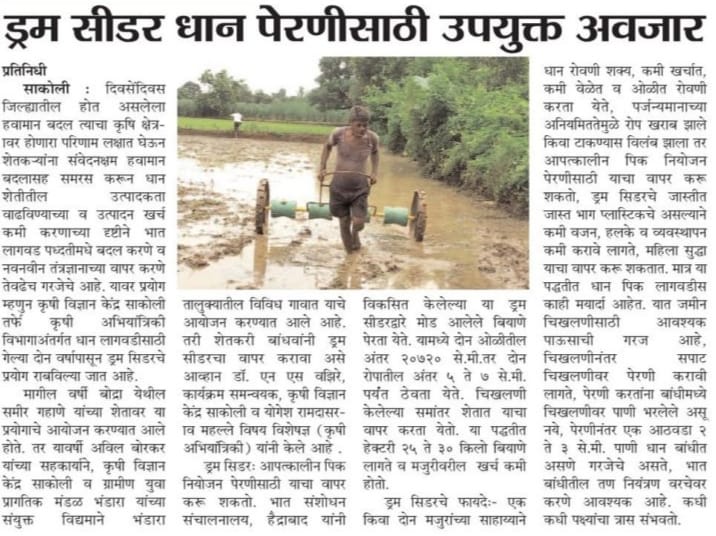
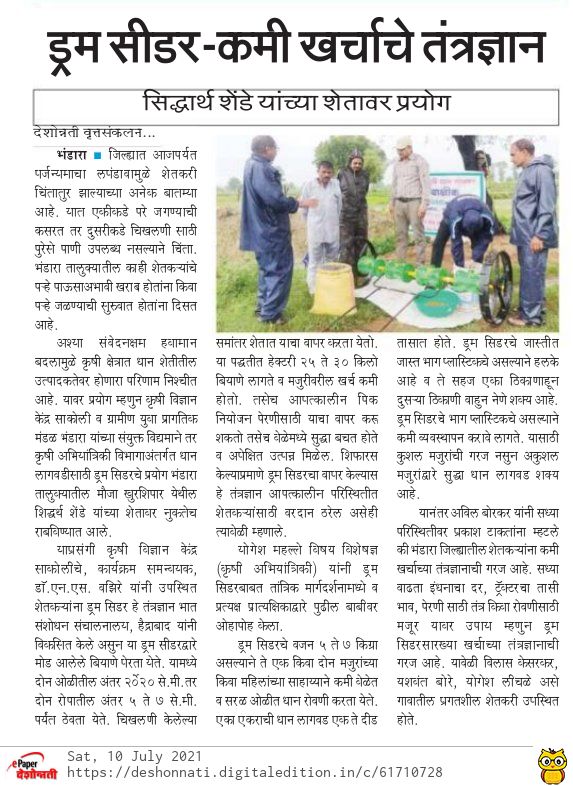
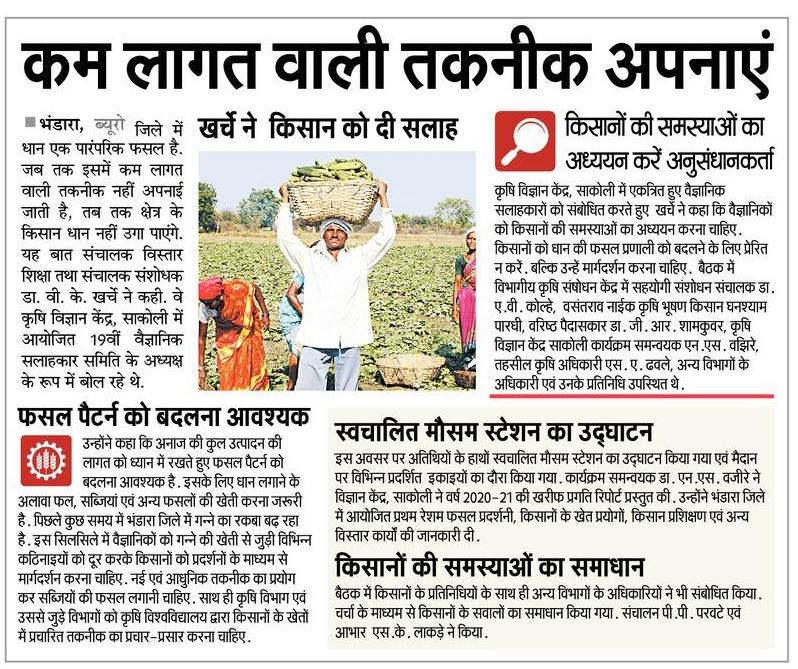
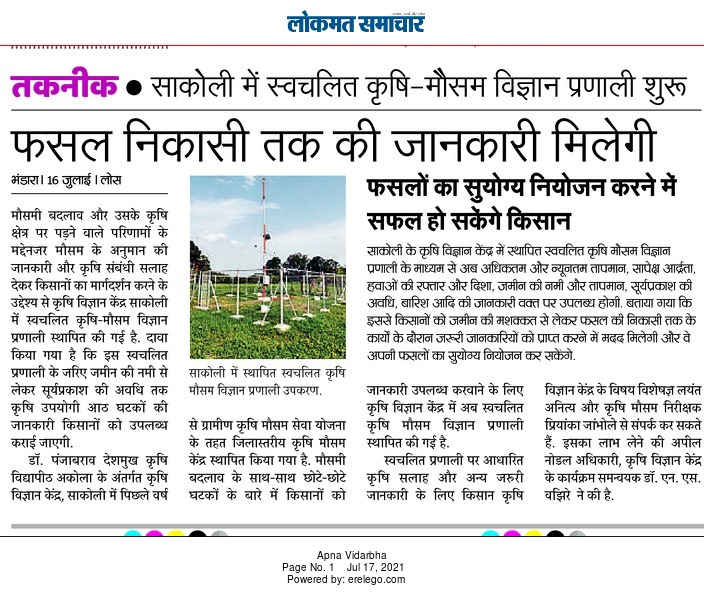
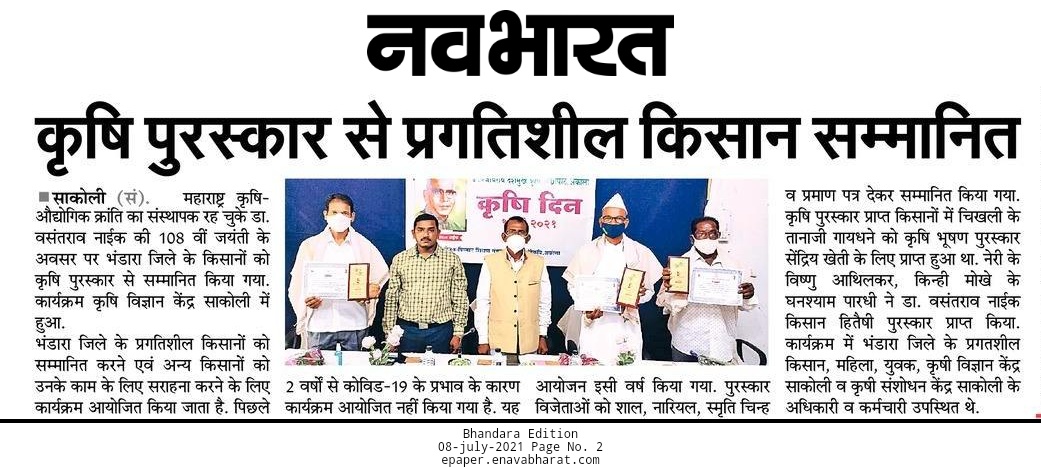
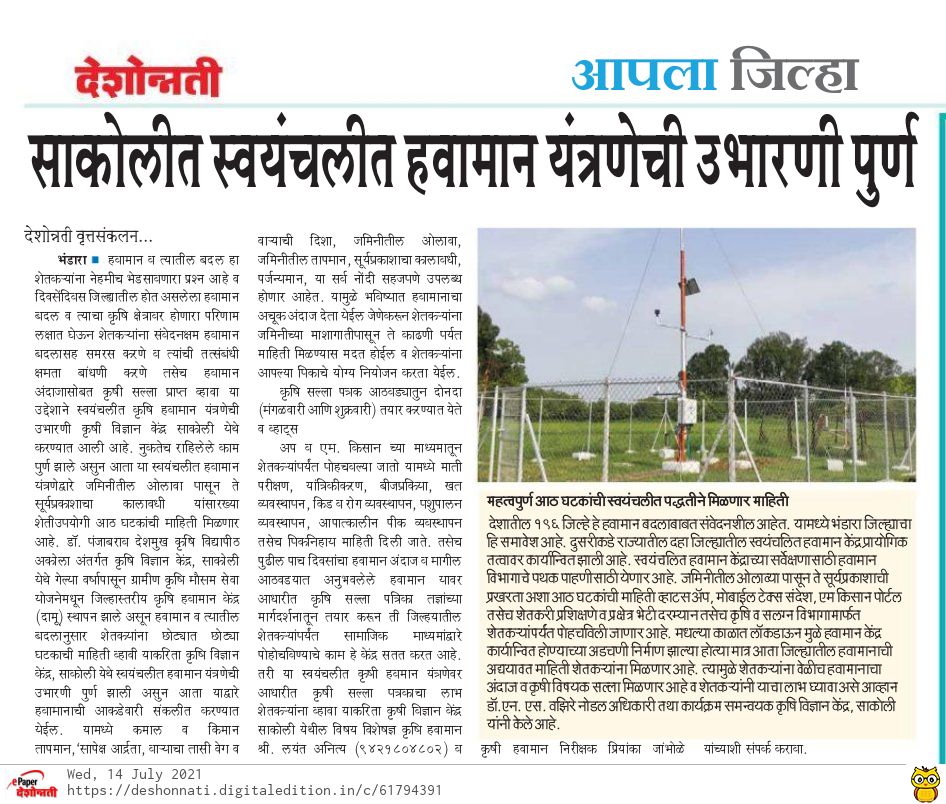
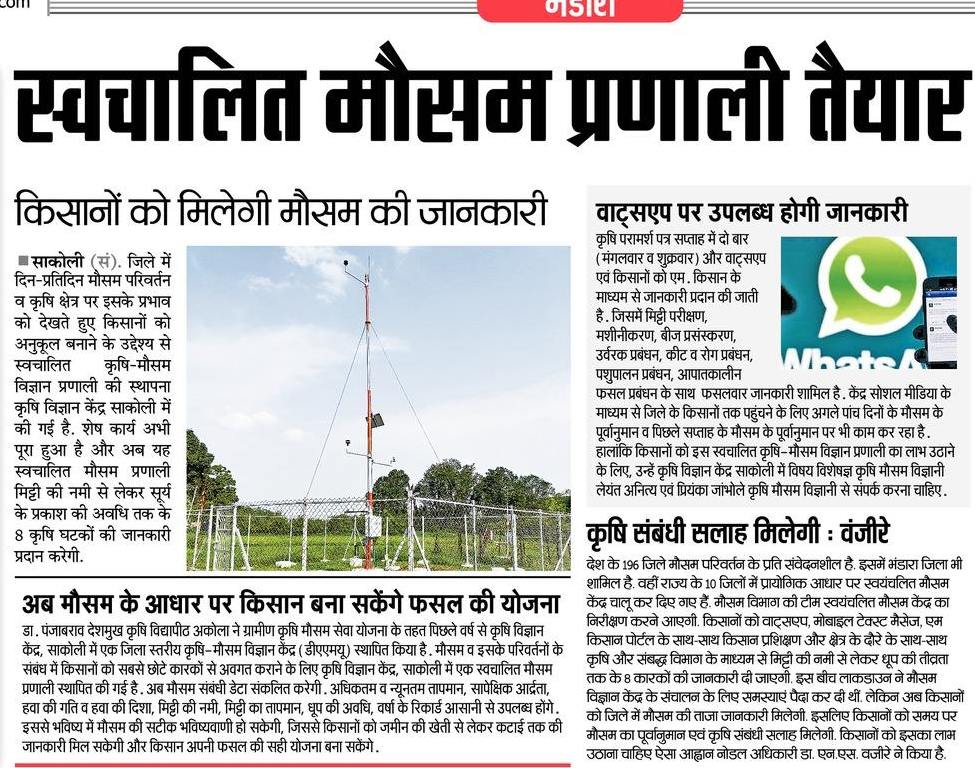
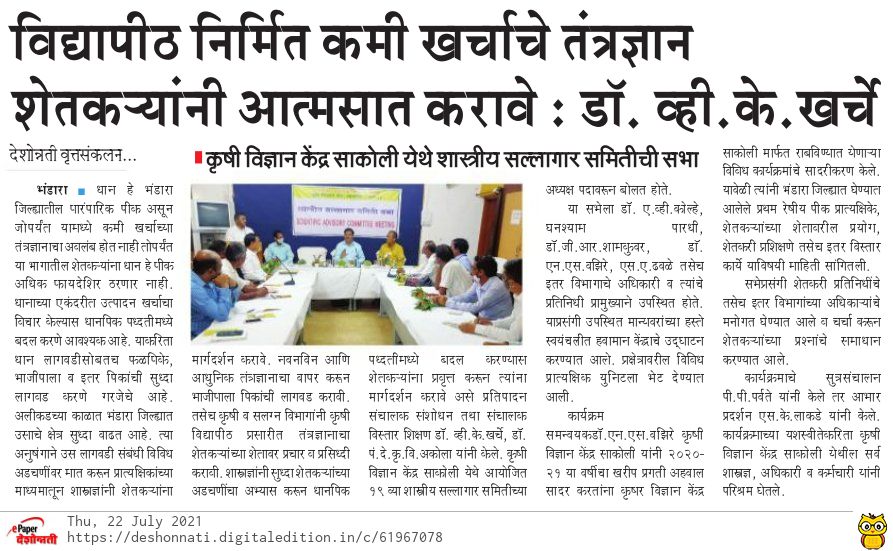
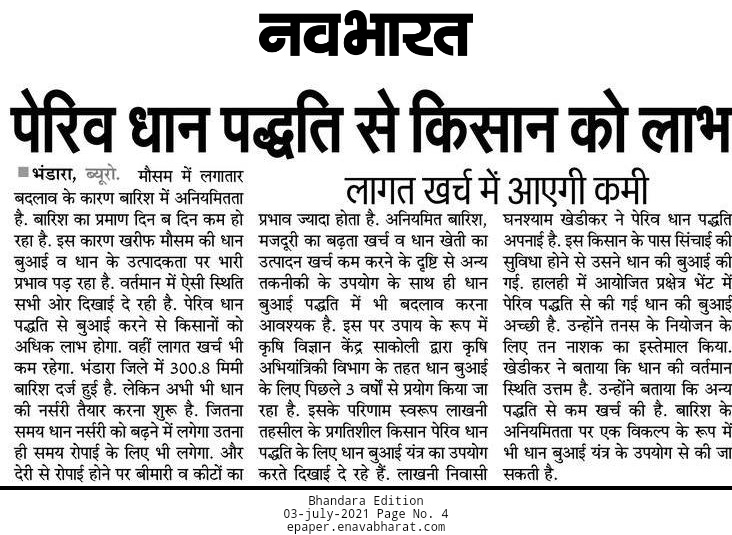

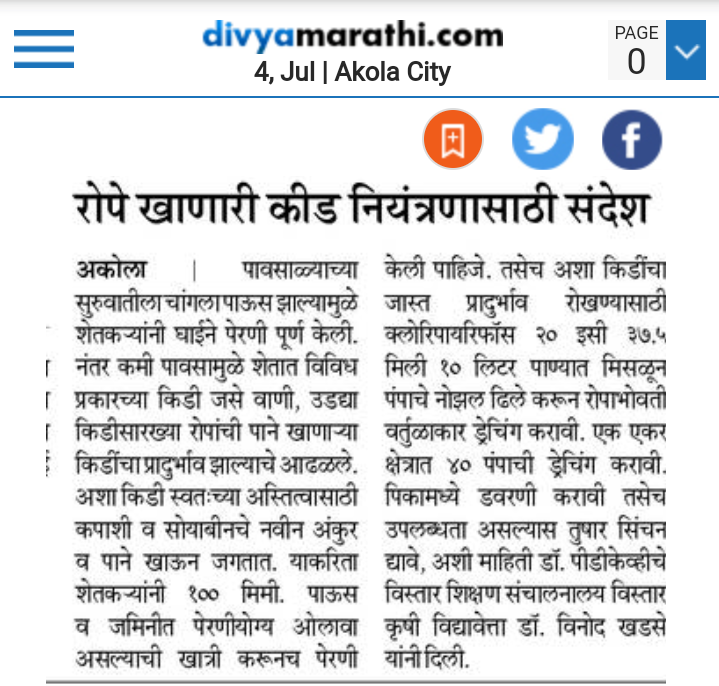
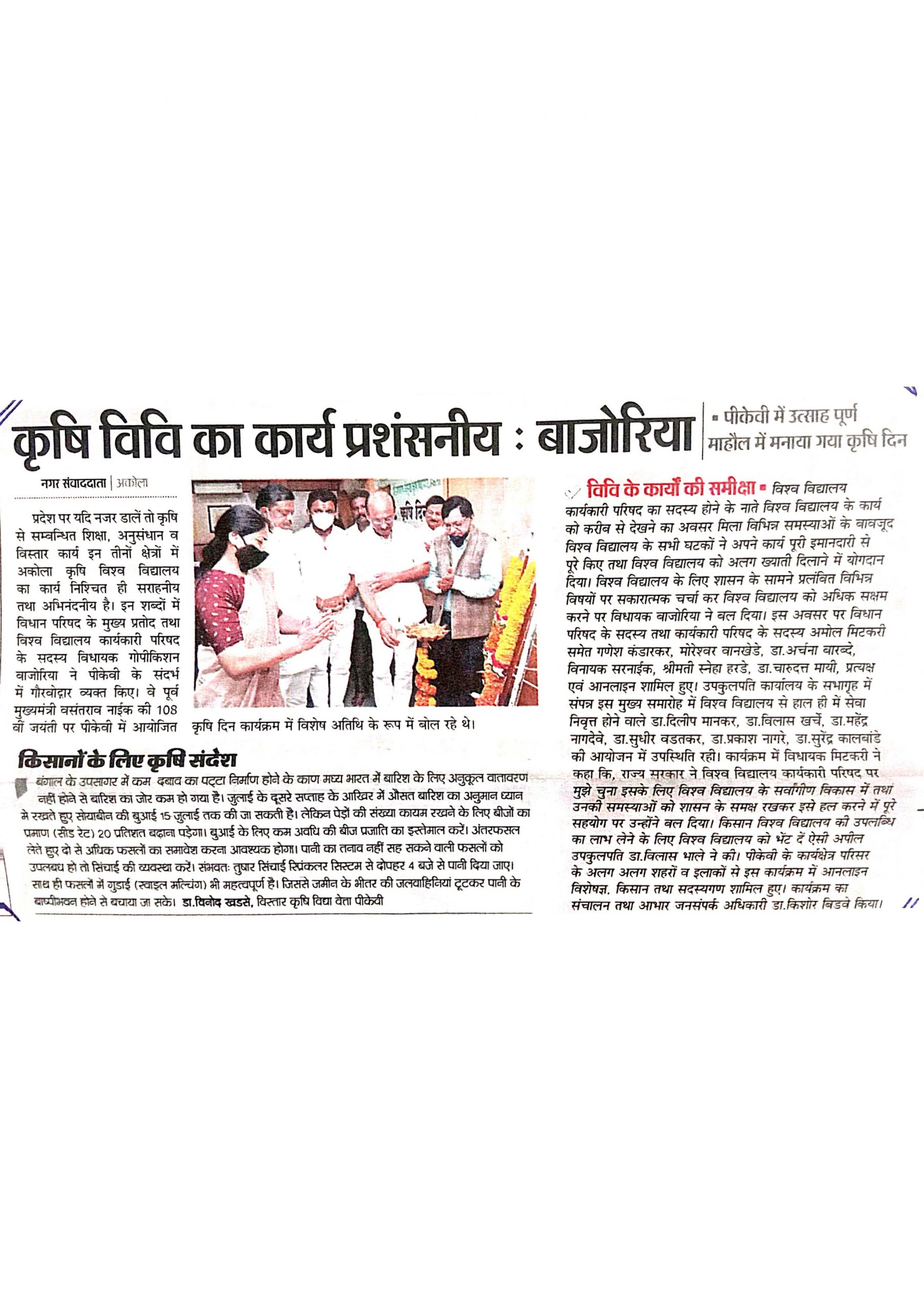
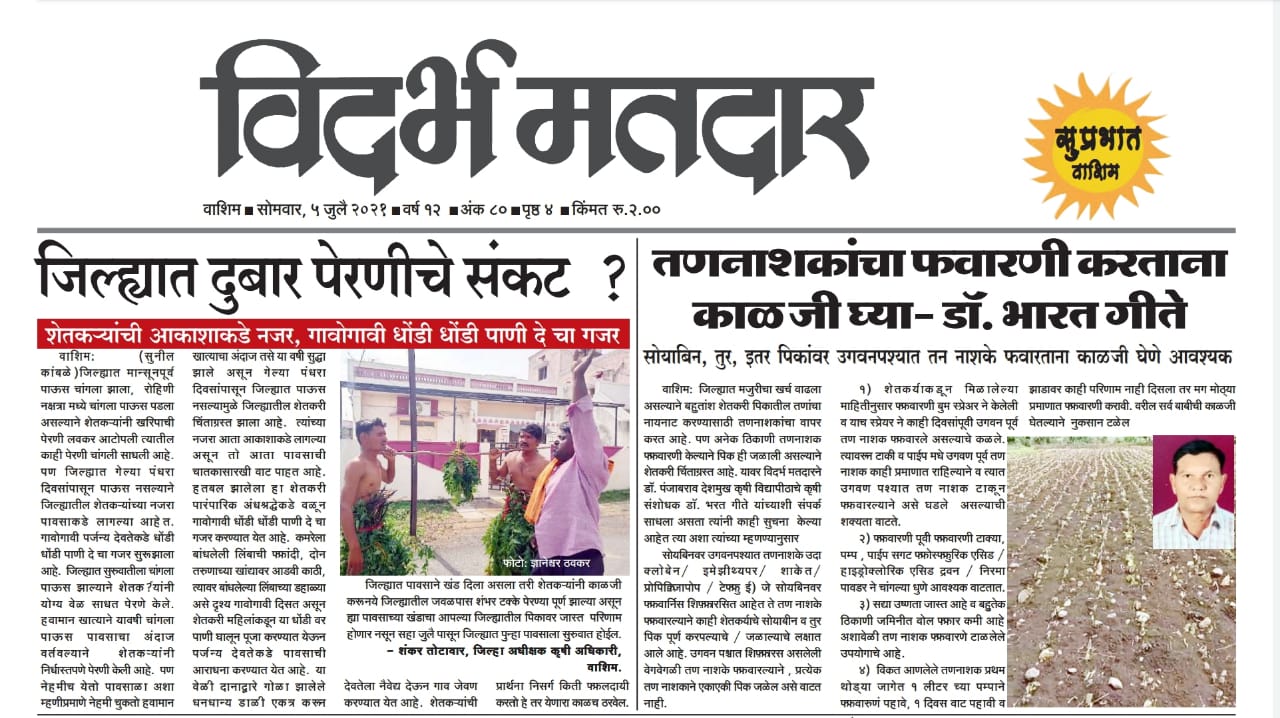

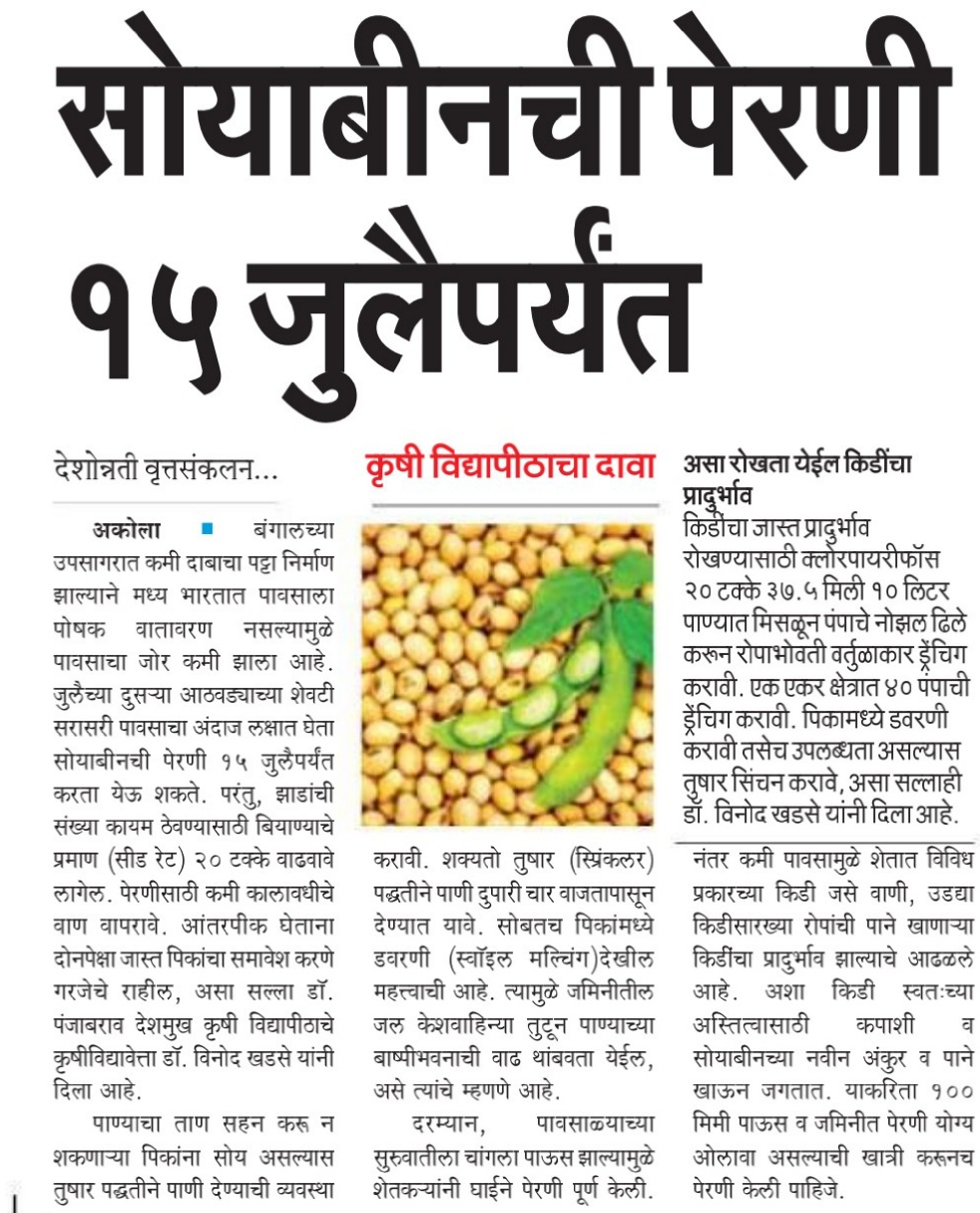
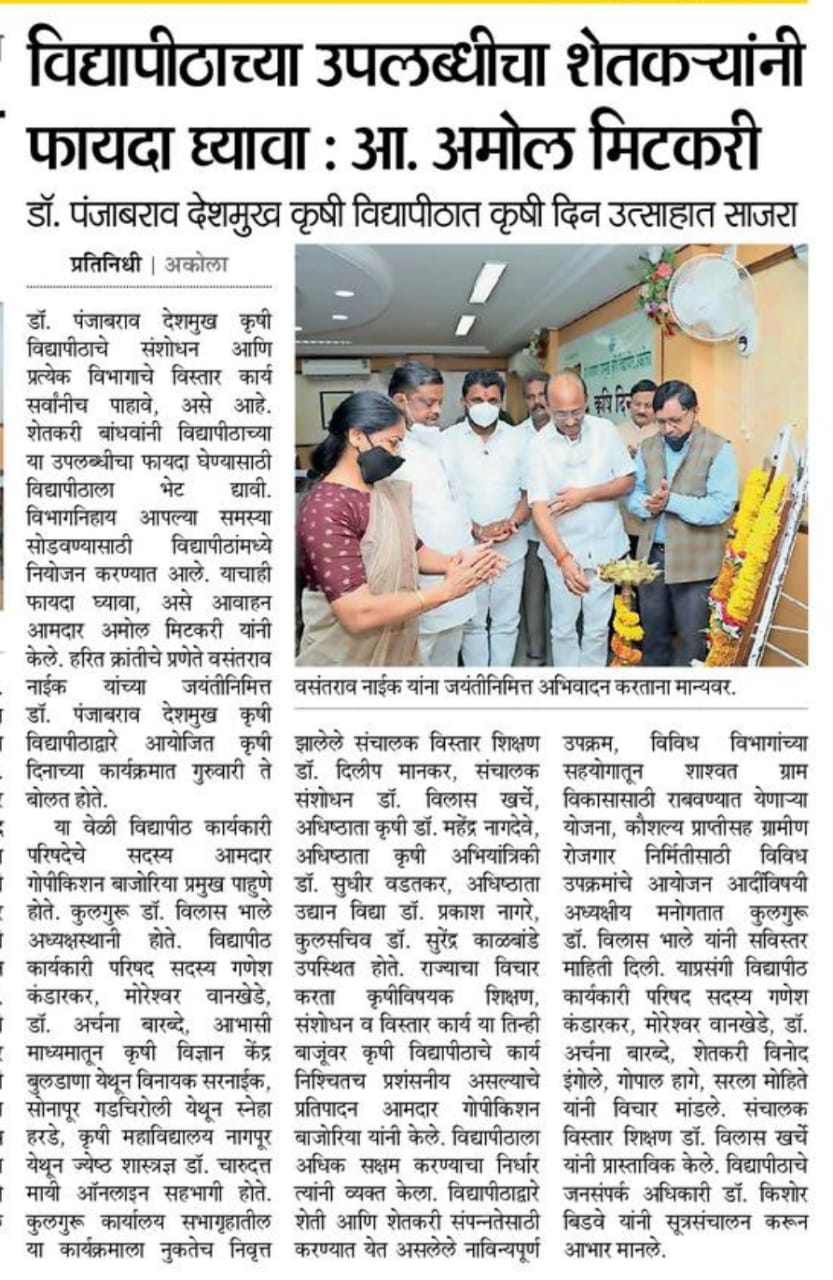




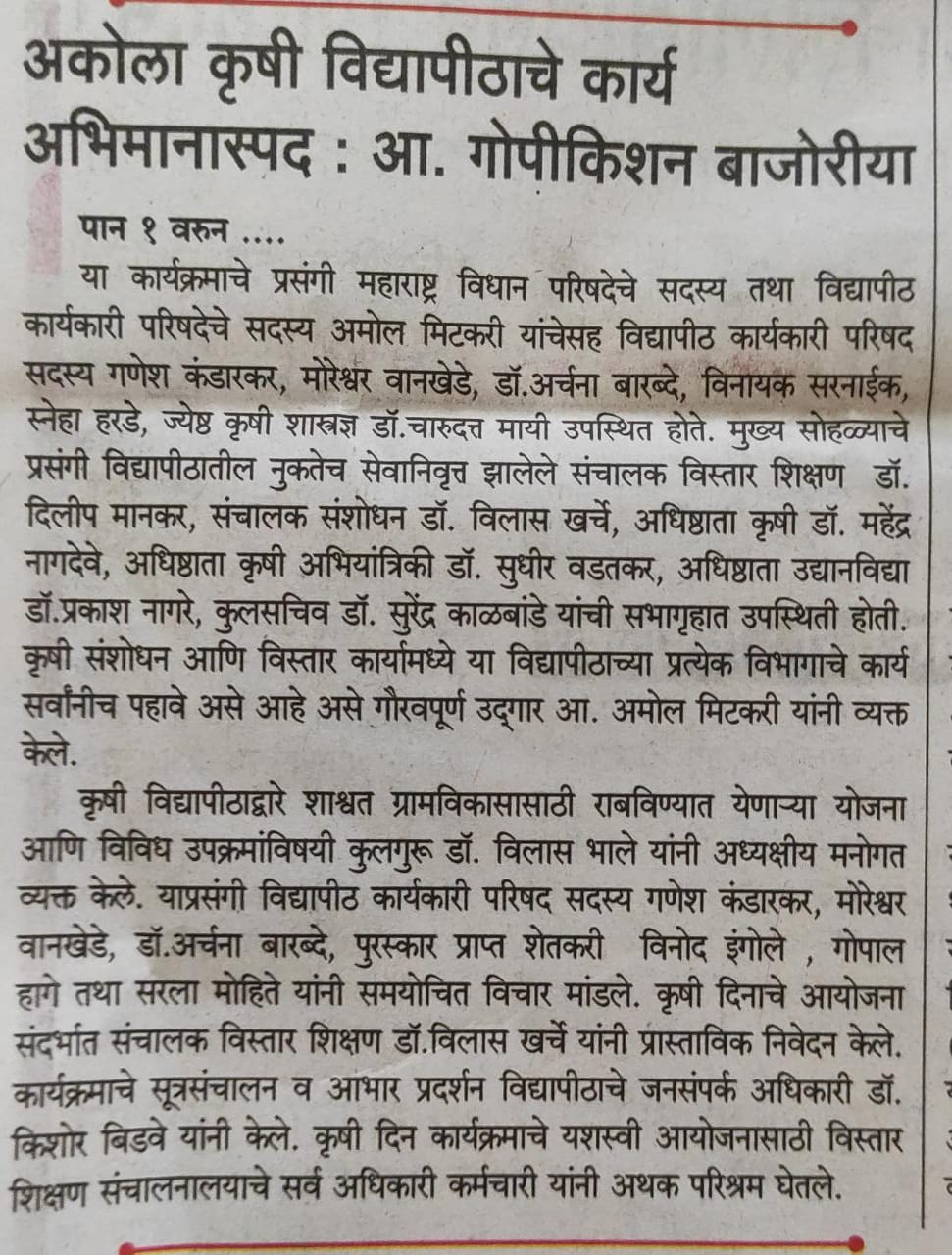









 Krishikosh Repository
Krishikosh Repository


